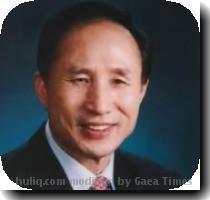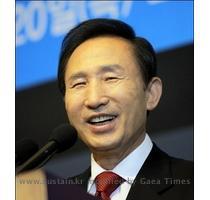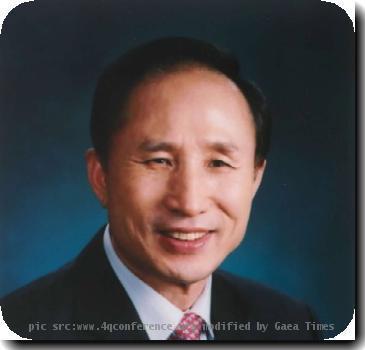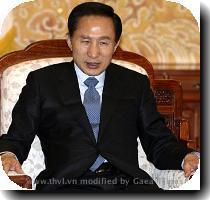Lee says Seoul will no longer tolerate NKorea ‘brutality,’ will take North to Security Council
By Jean H. Lee, APSunday, May 23, 2010
Lee: SKorea will take North to UN Security Council
SEOUL, South Korea — South Korea’s president said Monday that the country will no longer tolerate North Korea’s “brutality” and said the regime would pay for the surprise torpedo attack that killed 46 sailors.
President Lee Myung-bak said Seoul will take Pyongyang to the U.N. Security Council, suspend inter-Korean exchanges and ban North Korean ships from passing through its waters.
North Korea must be punished for its repeated provocations, Lee said in a solemn address to the nation from the War Memorial as he recounted the “incessant” pattern of attacks by communist North Korea, including the downing of an airliner in 1987 that killed 115 people.
“We have always tolerated North Korea’s brutality, time and again. We did so because we have always had a genuine longing for peace on the Korean peninsula,” Lee said.
“But now things are different. North Korea will pay a price corresponding to its provocative acts,” he said. “I will continue to take stern measures to hold the North accountable.”
A joint international civilian-military investigation team announced last week that their probe confirmed a North Korean torpedo sank the South Korean warship, the Cheonan, on March 26.
Fifty-eight sailors were rescued from the choppy Yellow Sea waters off the Koreas’ maritime border, but 46 perished — the nation’s worst military disaster since the 1950-53 Korean War.
North Korea has steadfastly denied responsibility. The North’s naval spokesman, Col. Pak In Ho, warned last week in comments to broadcaster APTN that any move to retaliate or punish Pyongyang would mean war.
As Lee spoke Monday, North Korea’s main newspaper, the Rodong Sinmun, called the investigation results an “intolerable, grave provocation” tantamout to a declaration of war.
“The traitor’s group will not avoid our merciless punishment,” the paper said in commentary carried by the official Korean Central News Agency.
The two Koreas technically remain in a state of war because the fighting ended in 1953 in a truce, not a peace treaty, and the countries are divided by a heavily guarded Demilitarized Zone.
Despite the armistice, North Korea is blamed for a number of deadly attacks on the South over the decades, including a 1983 bombing in then-Burma targeting a South Korean presidential delegation and the downing of the airliner.
Their two militaries also have clashed in the waters of the west coast.
North Korea disputes the maritime border unilaterally drawn by U.N. forces at the close of the Korean War, and the Koreas have fought three bloody skirmishes since 1999 — most recently in November, when a gunfight killed one North Korean, according to the South Korean military.
The U.N. Armistice Commission was investigating whether the sinking of the Cheonan constituted a violation of the 1953 truce.
Lee said the South Korean military was prepared to defend itself against any further provocations. His defense minister was expected to lay out the measures the military was planning to take.
Opening high-level U.S.-China talks in Beijing, U.S. Secretary of State Hillary Rodham Clinton said North Korea must be held to account for the sinking of the Cheonan.
Clinton, who was due in Seoul on Wednesday, urged China to work with the United States to coordinate a response to the sinking of warship.
China, North Korea’s main ally and a veto-wielding member of the U.N. Security Council, has urged restraint and has so far remained neutral on the investigation results.
Since 2006, the Security Council has issued two resolutions punishing North Korea for conducting nuclear and missile tests.
Associated Press writers Hyung-jin Kim in Seoul and Matthew Lee in Beijing contributed to this report.
Tags: Accidents, Asia, Beijing, China, East Asia, Greater China, Lee Myung-bak, Myanmar, North America, North Korea, Seoul, South Korea, Southeast Asia, Territorial Disputes, Transportation, United States



